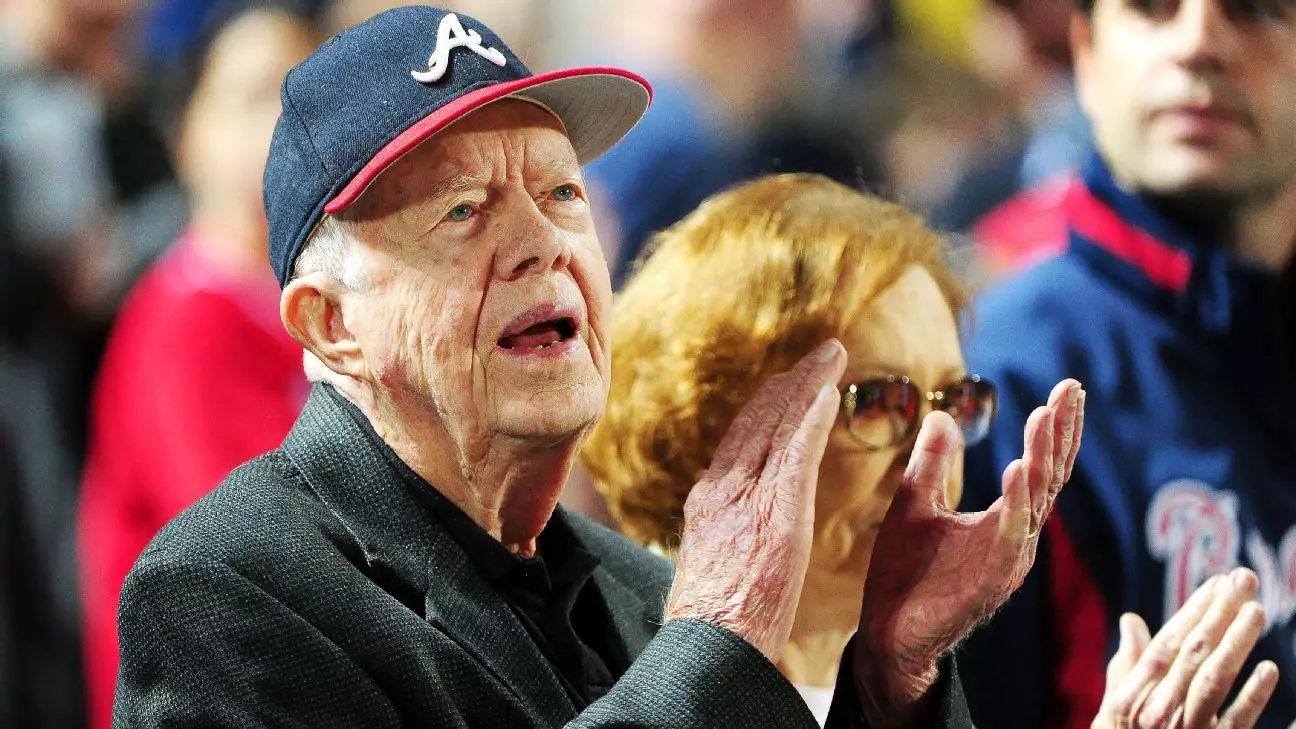The recent passing of former President Jimmy Carter has drawn a multitude of reflections on his long life and the indelible mark he left on both American society and global humanitarian efforts. As the longest-serving former president in U.S. history, Carter’s legacy extends far beyond his term from 1977 to 1981. Even at the age of 100, he remained a pivotal figure whose influence resonated through political, social, and humanitarian spheres. His contributions to the world and his country inspire a deep examination of what it means to lead and serve.
Born James Earl Carter Jr. in Plains, Georgia, Carter’s path to the White House was shaped by a blend of humble origins and a steadfast commitment to public service. Before ascending to the presidency, he held notable positions, including serving as a Georgia state senator and governor. These roles laid the groundwork for his subsequent election as the 39th president of the United States.
Carter’s presidency was marked by a commitment to human rights and democratic governance. His administration faced significant challenges, including the Iran hostage crisis and economic turbulence characterized by inflation and energy shortages. Despite these obstacles, Carter’s focus on ethical leadership and global diplomacy is remembered as a transformative aspect of his presidency. He championed policies intended to position the U.S. as a leader in advocating human rights, across the globe.
One of the most contentious decisions of Carter’s presidency was the American boycott of the 1980 Moscow Olympics. This act of political dissent was a direct response to the Soviet Union’s invasion of Afghanistan. In retrospection, Carter acknowledged the emotional burden tied to this decision, revealing in his memoirs the difficulty of denying U.S. athletes the opportunity to compete. His action, however, resonated with more than 60 nations that joined the boycott, including significant global players like West Germany, Japan, and China.
Carter’s decision was not just a fleeting political tactic but underscored a belief that sports should not exist apart from moral and ethical imperatives. In later years, he would reflect on the repercussions of this decision, illustrating how far-reaching its implications were, as the Soviet Union retaliated with a boycott of the 1984 Los Angeles Olympics. This approach to intertwining sports with global politics remains a topic of debate and exemplifies the complexities of leadership during turbulent times.
After leaving the presidency, Carter did not retreat from public life; instead, he engaged earnestly in humanitarian endeavors. In 1982, he founded The Carter Center, a nonpartisan organization dedicated to promoting democracy, human rights, and global health initiatives. His lifelong commitment to these causes demonstrated a profound understanding of the interconnectedness of global citizens.
Carter’s impact on public health is particularly noteworthy, as he worked tirelessly through The Carter Center to eradicate diseases and improve living conditions in impoverished regions. In recognition of these efforts, he was awarded the Nobel Peace Prize in 2002—a testament to his belief in the power of diplomacy and humanitarian efforts to create lasting change.
In addition to political and humanitarian work, Carter’s partnership with Habitat for Humanity showcased his dedication to building homes and fostering community, making strides in addressing housing crises. His physical involvement in building projects, well into his later years, illustrated a hands-on approach to humanitarian service that resonated with countless individuals across the nation and beyond.
Carter’s personal life also illustrates a story of dedication and partnership. Married to Rosalynn Carter since 1946, their relationship epitomized a committed partnership grounded in shared values and mutual support. Together, they had four children and became pillars of their community in Plains, Georgia. Their love story, marked by decades of friendship and collaboration, resonates with those who admired their genuine affection and shared mission to improve the lives of others.
Even as cancer necessitated his entry into hospice care, Carter’s choice to spend his final days surrounded by family is a poignant reminder of the importance of familial bonds. He continued to embody humility and grace, traits that characterized both his presidency and his post-presidency involvement in humanitarian work.
With his passing, Jimmy Carter’s rich legacy invites ongoing reflection on the essence of leadership and service to humanity. His life story serves as a reminder that true greatness lies not merely in the positions we hold, but in the impact we make on the world around us.

